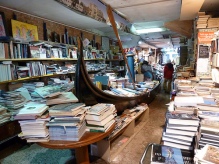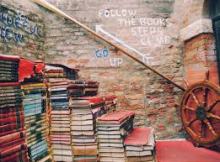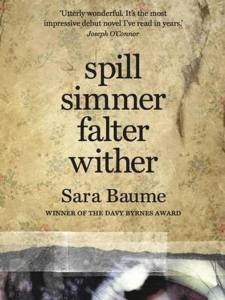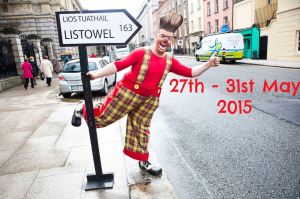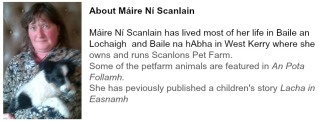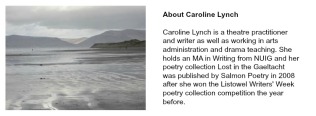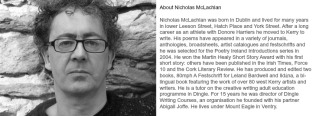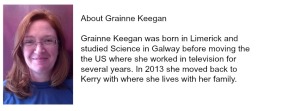Acqua Alta, Venice
Another writing competition
http://www.originalwriting.ie/pages/competition-page-001
Original Writing Summer Short Story Competition

Welcome to the Original Writing Summer Short Story Competition. We’re continuing to support new writing and our latest competition is one for anyone who would love to see their story in print. During June, July and August we’ll be accepting stories (word limit 1,300) on different themes. This month the theme is “Breaking News”. Just pen a story of 1,300 words or less using “Breaking News” as your inspiration.The good news is that the competition is open to all and there is no entry fee whatsoever.
So, What’s the Prize?
We think you’ll like it. We will select 10 of our favourite pieces each month and those stories will be published in our new Anthology of Short Stories, to be published this Autumn. If your work is selected you will get to see it in print in the collection. We think that this is a prize that writers will appreciate and we’re looking forward to your wonderful words flowing in!
New short story competition for UCC 98.3FM
A short story competition for radio and is open to original short stories in the English language of 3,000 words or less.
These stories can be on any subject, in any style, by a writer of any age and of any nationality, living anywhere in the world.
The shortlist of 40 stories will be recorded for broadcast.
The prize fund is only massive
1ST PRIZE €300 | 2ND PRIZE €200 | 3RD PRIZE €100
The website with more details of the rules and how to enter is
Waiting for next year awards
Soon updated rules and dates for our next edition will be published here. Meanwhile have a nice time writing or reading or both.
Here’s a suggestion:
Listowel writers’ week opens today
The Kerry Literary Awards – another story
Among all the nearly 60 entries we received, we had to refuse a handful. Mostly because they were sent by writers living outside Kerry which did not comply to the rules.
One of them, though, from a Kerry writer, was a good story, yet we could not consider it because it was a delicious story for children. Our Irish speaking judges read it and commended it. And so we are going to publish it here.
It’s a story in Irish (one of the two entries in Irish – we were very disappointed to have only these two and hope we will get more next year). Hope you enjoy it and your children too.
Pota Folamh
by Máire Ní Scanlain
DHÚISIGH GLIC, an madra rua, as a chodladh, de gheit! Cad as a bhí an chlagarnach, a bhí sé ag cloisint, ag teacht as? Thosnaigh an ghlamaíl arís!
A há! As a bholg a bhí sé ag teacht! Glór an ocrais!
D’fhéach sé anuas ar an bhfeirm, a bhí i mbun an chnoic, agus ar chró na gcearc. Bhí gandal breá ramhar le feiscint thíos ann agus é sínte siar á
ghrianú fhéin. Tháinigh ocras mílteach air nuair a shamhlaigh sé an gandal istigh i bpota mór in éineacht le prátaí agus glasraí, agus é ag beiriú go breá sa tine. Sea! Bhí sé in am turas a thabhairt ar an bhfeirm.
Bheir sé ar phaca breá mór laidir, chaith sé thar a ghualainn é, agus as go brách leis go mbain sé amach geata na feirme.
Thíos ar an bhfeirm bhí, Scrogall, an gandal, sínte siar agus é ag sú na gréine go breá dho fhéin. Ó, nách deas é an saol! D’análaigh sé isteach aer breá úr.
Ach cad é seo? Go thobann shuigh sé in airde agus chuir sé a ghob san aer ag bolathaíl! Fuair sé boladh sionnaigh!. Sheas sé cruinn díreach in airde agus lig sé béic in aird a ghutha! “Gooooooob”! Tháinig sceon ar na cearca agus na lachain ar fad agus ritheadar go léir isteach sa bhothán.
Bhí an madra rua timpeall luath anocht agus gan an ghrian dulta faoi fós. Lean Scrogall isteach iad agus é ar buile! “Nách fuirist eagla a chur oraibh” ar sé go crosta. “Caithfear an ruaig a chur ar Ghlic” ar seisean, “ ach caithfimid cuimhneamh ar sheift nó seifteanna. Bailíg timpeall orm agus tosnóimíd ag smaoineamh”.
Chuaigh Glic i bhfolach i mbaraille a bhí in aice le geata na feirme. Go cúramach d’árdaigh sé a cheann in airde as an mbaraille agus d’fhéach sé isteach sa chlós. Ó! bhí na héanlaithe ar fad imithe! A thiarcais! Bhí a fhios ag Scrogall go raibh sé timpeall agus bhíodar ar fad baillithe isteach sa bhothán aige uaidh.
Chaithfeadh Glic cuimhneamh ar sheift chun Scrogall nó ceann dos na cearca a mhealladh amach sa chlós. Ansan dá rithfeadh leis, sciobfadh sé leis ceann, agus bhogfadh sé leis abhaile chun béile breá blasta a bheith aige.
Go cúramach isteach sa chlós le Glic. Bhí an t-ádh leis! Bhí na muca agus na gabhair ina gcodladh. Bhain sé amach doras thigh na gcearc agus thug sé stracfhéachaint isteach. Bhí na cearca agus na héanlaithe go léir ina gcodladh. Ach cá raibh Scrogall? Thug Glic stracfhéachaint eile isteach sa bhothán. Ní raibh aon Scrogall ann! Anois! Cá mbeadh sé? Go hobann bhraith sé rud éigin ag seasamh ar a eireaball! Agus a thiarchais!, fuair sé prioc mór diamhair sa tóin. Ouch! Ouch! Ouch!
D’fhéach sé laistiar dhó agus cé a bhí ann ach Scrogall agus cuma fíochmhar, mhallaithe air!
“Hsssss,” a dúirt Scrogall. “Bog leat abhaile agus ná tar thar n–ais! An gcloiseann tú mé”?
“ Raghaidh mé abhaile,” arsa Glic, “ach beidh tusa sa mhála agam ag dul abhaile nó rud éigin ar nós tú”!
Thug Glic ruathar fé Scrogall, ach go hobann fuair sé é fhéin in airde san aer! Bhí an t-emú (?) tar éis breith ar chluais air, agus chaith sé thar claí isteach go cró na muc é. Anuas, plap, san aoileach leis! Ó! An boladh a bhí uaidh! Léim Glic isteach in umar uisce na muc chun é fhéin a ghlanadh! Anois bhí sé glan ach fliuch báite. Seo leis isteach i mbothán na muc agus thosnaigh sé á chuimilt fhéin le féar tirim. Anois bhraith sé níos fearr! Go hobann d’imigh solas an lae is fuair na haon rud chomh dorcha le pic! Shuigh an chráin mhuice, mhór, ghroí, anuas air! Cheap sé go raibh a phort sinnte, ach ar chuma éigin, bhí sé ábalta ar é fhéin a tharraingt amach ó fé bhun na muice!
D’fhéach sé amach thar claí is chonaic sé Scrogall agus na héanlaithe eile agus iad ag briseadh a gcroíthe ag gairí! “ Beidh an fhocal deireanach agamsa” a deir sé leis fhéin, “ gáirí nó gan gáirí”.
Léim sé isteach i mbarra rotha, a bhí in aice le cró na muice, agus chrom sé síos i bhfolach istigh ann, agus d’fhan sé ann go raibh gach rud ciúnaithe síos.
Tar éis tamaill bhí gach rud ina thost. D’éirigh sé amach as an mbarra rotha agus bhain amach doras an bhotháin, go deas ciúin. D’éalaigh sé isteach go deas socair. Chuir sé amach a lapa chun breith ar chearc bhreá ramhar! Ach cad é seo! Bhraith sé piliúr caite anuas ar a phlaosc ag an bpéacóg! Phléasc an piliúr oscailte, agus tháinig na mílte dreancaire amach as agus scaipeadar timpeall ar a chorp! Ó, an tochas a bhí air! Cheap sé go scracfadh sé an craiceann anuas do! Rith sé amach an doras, agus fuadar fé, agus léim sé isteach i linn snámha na lachan. Thum sé é fhéin faoin uisce. D’éirigh sé amach as an uisce agus chroth sé é féin.
Anois bhraith sé rud éigin ag cogaint ar a eireaball agus rud eile ag cogaint ar a chluais agus, ar ámharaí an tsaoil, léim rud éigin in airde air agus thosnaigh ag damhsa sall is anall ar a dhrom! Na gabhair a bhí ann! Bhí pocán, mór, dubh, lastiar dóibh, le adharca móra groíthe, fada agus a cheann cromtha síos, agus dhá shúil dhearg air!
Thug sé ruathar fé Ghlic. Thug sé poc sa tóin do a d’árdaigh in airde sa spéir é, thar gheata na feirme amach! Thuirling sé lasmuigh do dhoras cúil an tí. Bhí a cheann tinn, a thóin tinn agus cnapáin mhóra air ag na dreancairí!
Luigh sé in aice le falla an tí ar feadh cúpla soicind. D’fhéach sé timpeall air fhéin. Chonaic sé doras in aice leis agus é oscailte. Chuir sé a choincín in aice leis an doras agus thosnaigh sé ag bolathaíl. Umh! Bia! Go deas socair, chuaigh sé isteach an chúlchistin. Sea! Bhí doras na cistine oscailte. Isteach leis go cúramach. D’fhéach sé timpeall. Ní raibh éinne istigh. Boladh breá bídh istigh ann ach cá raibh sé? D’oscail sé cúpla curpad ach ní raibh faic iontu ach potaí agus plátaí agus rudaí mar sin. Ní bhainfeadh siad san aon ocras do dhuine! Ansan d’oscail sé an cuisneoir. Bhí bainne agus ím agus glasraí anso istigh, agus pláta mór ceapairí le feoil iontu! D’oscail sé a mhála agus bhailimh sé iad ar fad isteach ann, agus chaith sé lasáin, a bhí in aice láimhe, isteach ann chomh maith. Bheidís áisiúil chun tine a chur fé Scrogall is é istigh sa chorcán! Amach an doras leis go tapaidh!
Ansan stop sé is chuimhnigh sé. An diabhal san, Scrogall, d’íosfadh sé aon rud! Bhí sé scumhaite chun bídh! D’fhéach sé isteach ina mhála agus smaoinigh sé ar sheift!
Go deas ciúin, cúramach, chuaigh sé chomh fada le doras bhothán na gcearc. Thóg sé amach ceapaire, dhein píosaí beaga do agus dhein líne de píosaí aráin amach tríd an ngeata chomh fada le doras an tí. Ansan chuaigh sé i bhfolach lastiar do thor agus a mhála oscailte aige!
Istigh sa bhothán d’ardaigh Scrogall a ghob san aer. Bhí boladh bídh ag teacht as áit éigin! Chuaigh sé chomh fada leis an ndoras. Chonaic sé smut aráin ar an dtalamh! D’alp sé siar é! Chonaic sé smut eile aráin. D’alp sé siar é sin chomh maith! Agus píosa eile, agus píosa eile fós!
Seo leis, é ag féachaint ar an dtalamh, ar an arán, á alpadh siar agus lean sé air amach tríd an ngeata, sall chomh fada le binn an tí. Go hobann léim rud éigin amach ó thaobh thiar do thor agus chuir mála mór anuas air! A thiarcais!
Chroch Glic an mála agus Scrogall istigh ann in airde ar a dhrom agus as go brách leis amach as an bhfeirm. Bhog sé leis suas ar an gcnoc i dtreo a phluaise fhéin. Leath slí suas stop sé chun sos a thógaint. Bhí an diabhal gandal san an-throm! Chaith sé é fhéin in aice le claí móna go mbíodh cruach mhóna taobh leis tamall. Shín sé siar go breá sásta leis fhéin! Tar éis tamaill thit sé ina chodladh.
Go deas ciúin dhein Scrogall scoilt mór ins an mhála. D’fhéach sé ar Ghlic a bhí ag sranntanaigh. Amach as an mála leis. A há! Chuimhnigh sé ar sheift! Go deas ciúin líon sé suas an mála le brúscar móna. Sháigh sé fionnán isteach in éineacht leis an móin chun cuma dheas bhog a chur ar an móin!
Chuaigh Scrogall I bhfolach lastiar don gclaí ag faire ar Ghlic. Tar éis tamaill dhúisigh sé. Chuimil sé a shúile, sheas sé in airde, chaith sé a mhála thar a ghualainn, agus thosnaigh ag siúl. Go ciúin tháinig Scrogall lastiar dho agus las sé píosa don bhfionnán a bhí ag gobadh amach as an mála. Ansan leath Scrogall amach a sciatháin, is d’eitil sé leis go mbain sé amach cró na gcearc.
Idir an dá linn bhí Glic ag fail boladh dóiteáin! Cad as go raibh sé ag teacht? Bhraith sé é fhéin ag fáil an-the agus ansan fuair sé boladh fionnadh á dhó! D’fhéach sé lastiar dho! A thiarcais ! Bhí a mhála ar dearglasadh! Chaith sé uaidh go tapaidh é, agus phocléim sé isteach san abhainn a bhí taobh leis!
Bhí an gomh dearg air ’dtí Scrogall! D’fhéach sé ar a mhála. Móin a bhí istigh ann, á dhó! Bhí cúpla ceapaire leathdhóite thíos i mbun an mhála. D’ ith sé siar iad.
D’fhéach sé síos ar chlós na feirme agus chonaic sé Scrogall ag dul isteach sa bhothán. Chroith sé a lapa le Scrogall is thosnaigh sé ag smaoineamh ar phlean …
KERRY LITERARY AWARDS 2015 FOR SHORT STORIES – ALSO IN THE SHORT LIST (IV)
The Loan
by Caroline Lynch
Mundy Relihan walked up the hill towards the house.
Margaret watched from the kitchen. When he had passed the window and gone round the side of the house she folded up the tea towel and went to the back door to let him in.
‘You’re welcome,’ she said. ‘Come in.’
Mundy stepped in. A skitter of leaves tried to make it over the threshold as well but Margaret closed the door on them as Mundy shuffled deeper into the kitchen. He hesitated over the soft cushions of the armchair next to the fire, but managed to propel himself past them and onto a hard, upright chair nearby.
‘You’ll have a cup of tea,’ Margaret said, beginning the simple ritual.
‘I will, Margaret, I will,’ Mundy said. ‘That’d be grand.’
Mundy had timed his visit well. Margaret was just reaching for the tea caddy when John pushed open the back door. He stood in the windy gap taking off his boots and overcoat. The leaves scraped and scuttled in between his ankles. Margaret watched them settle in a corner while she heaped three spoonfuls of tea leaves into the pot. Her mouth tightened a little.
Every morning at this time, when the children were gone to school and the house was in order again, John came in for his full breakfast. Margaret would have the table laid with a starched cloth and polished cutlery. When they first married he had found the tiny handle of the tea cup tricky to hold but he had come around to her way of thinking – the tea did taste better.
This is what Mundy saw as he sat on the hard, upright chair: the delicate fineries of a prosperous household. He held out his hands for the tea cup balanced so particularly in its saucer. A bird’s nest, he thought.
‘Sit up at the table altogether, Mundy,’ John said.
Margaret added another egg to the pot and cut more bread.
The men ate until there were only crumbs left and kept up a gentle commentary on the weather and animals and mart prices. But Mundy’s eyes kept flickering anxiously towards Margaret, as if her presence was constraining him. Margaret knew she must not excuse herself too early or he would realise he had given himself away. She delayed a little longer than she usually would, drying knives and forks meticulously and tidying away odds and ends that always collected on the deep window sill. Then she turned and said,
‘Will you excuse me, Mundy? I have a few bits to do down the house.’
Mundy smiled, relieved.
‘Away you go, Mrs. Roche. And thank you kindly for the cup of tea.’
She left, leaving the door slightly ajar.
In the sitting room, she stood by the old piano and stared at the bookcase opposite. She was thinking of the slice of bread and egg that Mundy had eaten. He had not thanked her for them. She calculated the dent that had been made in her weekly food account.
After a minute or two she came quietly back to the open door. She stood with her back pressed against the cold wall and her head inclined towards the kitchen.
The men mumbled on. She caught it, the request, as it meandered out from Mundy’s mouth:
‘If I could just get a bit off you to tide me over…’
John could not refuse. A refusal would embarrass and anger Mundy who might one day relish the chance to return the humiliation. Only a fool thought they’d never need their neighbours.
’Ten bob, or fifteen, and I’ll have it back to you in a month.’
Margaret leaned her head back and looked up at the ceiling. She hadn’t always been a farmer’s wife. As a teacher in London, she had worked in the poorest districts of the East End. It had been hard – children fought over mouldy crusts of bread and died in bombing raids. But she had always had a pay packet at the end of the week.
But as she moved through her thirties a tiredness entered her bones and her mind. Exhausted by war and by other people’s poverty, she came home for a holiday and allowed her mother to pet over her, to speak to her quietly, to mention this man’s name or that man’s name. And when John’s name was mentioned she had allowed herself to stay.
She had never thought of money. Not until her dowry had vanished into her husband’s farm and there was no pay packet at the end of the week. There was always food – they had their own bacon and milk and potatoes. But her purse only came out on Sundays and for the rare trip into town. She thought of the half-crown, two florins and sixpence in the purse. They could go towards the loan.
Mundy didn’t know that. Compared to his ramshackle yard and house, Roche’s was run by a capable woman and her husband was a sober, hardworking man with cattle, poultry and a pig. He was asking because he had calculated that they, of all his neighbours, could most afford to give him a loan.
Margaret felt a thrill of pride. She saw how she and her husband were regarded: prosperous, successful, and neighbourly. But John was honest. She realised that he might, in spite of all those considerations, still tell Mundy he had little cash himself. He might offer to help in any other way – cattle feed or fuel or materials – but confess he could not loan him the money.
She knew Mundy’s back was to the door so she stood quietly in the gap and waited for John to look up. When he did, slowly, as if he had always known she was there listening, she nodded three times and then went back to the sitting room and waited.
John walked Mundy out to the road. Margaret came out to the yard when he returned.
‘Do we have that money?’ he asked in wonder.
‘We’ll get it,’ Margaret replied, and she remembered her father saying the same thing when their engagement was agreed.
When the children came home late that afternoon they found their mother sitting at the kitchen table. She had a little mound of crumbs built up between her forefinger and thumb. The eldest boy, Michael, stopped in the doorway, his brother and sisters behind him. Margaret stood up, swept the crumbs into her cupped palm and threw them into the fire.
‘Drink some milk,’ she said to Michael, ‘and then run up to Mundy Relihan’s with that.’
She pointed to a small bag slouched on the table.
Michael poured himself a cup of milk and then picked up the bag. It was heavy for its size.
‘Go on. He’s waiting for you.’
Michael went back down the hill and took the left fork of the road to Mundy’s farm. The daylight was fading and a flock of crows were gathered on the branches of the tree at Mundy’s gate. They flew up in fright when Michael passed beneath them.
‘Caw!’ he shouted up at them. Michael was a natural birdwatcher, always alive to the little wren in the hedge or the song of a robin or a chaffinch high up in a tree. He had seen a small pair of binoculars in a shop window in Tralee. They nestled in the red lining of their leather case like a pair of eggs. He imagined hanging them round his neck, then bringing them up to his face and seeing in the glass lenses the feathers of a bird, close enough to count.
Mundy was in the yard. He looked round and Michael blushed a little when he realised he had been heard.
‘My mother said to give you this, Mr. Relihan,’ and he held out the bag. Mundy took it and stuffed it into the pocket of his old jacket.
‘Good boy,’ he said. ‘Come over here a minute.’
Michael followed Mundy Relihan across the yard, past old thresher parts, broken buckets and rotten lengths of wood. He hesitated for a moment and then followed Mundy into an old shed whose roof was declining into dereliction. In the semi-darkness, before his eyes had adjusted, he felt something pushed against his chest. His hands went around a cat.
‘Bring that back to your place. He’s a great mouser.’
Michael didn’t want to carry the cat all the way home – it would likely grow nervous and try to escape. He didn’t like catching cats at the neck – it made their eyes glaze over and drew their lips back over their teeth.
‘Thank you, Mr. Relihan,’ he said.
‘Off you go so,’ Mundy said, happy that he had given something in return for the money.
Margaret saw Michael come back up the hill with the cat. Michael had the cat held in the same way he had left with the bag of coins clutched in his fist. The cat was staring up at the darkening sky in that transfixed way she hated.
When he came close to the house, he dropped the cat to the ground. It stood stunned for a moment, then darted away to the nearest crevice.
‘Where did that cat come from?’ she asked when he came in the door.
‘Mr. Relihan gave it to me for the yard.’
Margaret knew they would never see the loan repaid.
‘Call the rest for their dinner. And call in your father from the yard.’
It was not a sparse table, Margaret thought, as she put out the plates with hot food upon them. We are not poor.
Michael couldn’t understand the sullen faces of his brothers and sisters. Mary’s eyes were red from crying and Tom’s lip was curled downward.
‘I sent Michael up to Mundy’s,’ his mother said to his father.
‘That was our money,’ Julia burst out. Margaret’s hand shot out and slapped Julia’s face.
As Julia roared, Mary said to Michael,
‘She emptied our piggy banks.’
Michael understood that Mary wanted him to fix this injustice. He also understood now that he had carried his own farm of coin animals – the ha’penny sows, the penny hen and shilling bull and, most precious of all, his half-crown horse, up to Mundy Relihan, who had given him a cat in return. The binoculars in Tralee would be bought by some other boy, some boy who had the money.
His mother’s eyes were fixed on him and her look was merciless. She raked his body looking for signs of strength, for signs of weakness. His ill health as a baby he had miraculously shaken off, but he would not be a farmer. He was a dreamy, intelligent child and she knew he would have to shake off the dreams too. Next year he would sit the scholarship exams for the boarding school in Killarney.
Michael looked from his mother to his sister.
‘So what?’ he asked belligerently. ‘There was nothing in your piggy banks anyway.’
Julia seemed to accept this brutal message. She rubbed her eyes and cautiously put a mouthful of potato to her lips. The fire went out of Mary’s eyes and Tom picked up his cup to stop his mouth from quivering.
The family ate the rest of their dinner quietly and when they were finished the children scraped their plates clean and then filed silently out of the kitchen. As Margaret stood up John caught the side of her dress in his fingers.
‘Was that right?’ he asked.
Margaret pulled away and went to the window.
The cat was sitting on the sill. It looked into the room and its eyes were glowing with hunger. Margaret drew the curtains together, making sure not a chink of light got out.
Kind words from our supporter Feile na Bealtaine
Feile na Bealtaine really needs to thank and commend this year’s inaugural Kerry Literary Awards, announced during the festival. This involved an enormous amount of work and organisation from the enigmatic Graca Nazare, and the newly established Women’s International cafe.
You can read the shortlisted stories (by Grainne Keegan, Nicholas McLaughlin) and prize winners Emer Fallon and Cathy Weldon at https://kerryliteraryawards.wordpress.com
Hopefully these will become an annual event, and grown in stature.
Beir bua.
KERRY LITERARY AWARDS 2015 FOR SHORT STORIES – ALSO IN THE SHORT LIST (III)
A Turn in the Road
by Nicholas Mclachlan
The man and woman, he in his forties and she younger, mid thirties, set off on a ramble towards the sea. The track they followed was rutted and uneven with the impressions of tractor tyres and the hoof prints of cattle. It led them towards the cliff edge, over rough silvery clumps of grasses to a place where they could sit out of the wind and contemplate the ocean together, talking or not talking as they wished. The man wasn’t drawn to the cliffs here in the way he might normally be. He thought them ill-defined. They weren’t high enough for him; you could scamble down to the rocks below without bother. He preferred cliffs that were monumentally tall and sheer, with a terrifying drop to the distant ocean below, cliffs you had to physically prevent yourself jumping from.
It was their third meeting but the first walk they had taken together. And because it wasn’t planned, they weren’t prepared for it. They were both wearing shoes, had nothing wind or waterproof. She, a head shorter than him, had a denim jacket that barely reached her waist. He had a longer coat but it was lightweight and the zip was broken. He didn’t have a hat and she had left her trademark white sailor’s cap at home. Nevertheless they walked contentedly on, side by side, through the rough pasture.
The sea, when they reached it, stretched west and north. There was a strong swell which broke over the limestone escarpments with an audible sucking motion. Each time the sea retreated it left dirty great globules of foam which the wind picked up and dispersed. She sat down with legs folded on the grass and looked down at the scene below. He didn’t question their coming together. He was, in his own way, at ease with the uncertainty involved. She had an artistic sensibility and a strong life force. For the moment that was enough.
The place they had chosen was a good way from the road, out of sight of passing traffic. Nevertheless he looked around once or twice to make sure they were not being watched. When he was satisfied he lay down beside her and stretched out, keenly aware of her proximity on the square of grass they shared now flattened beneath his body and hers.
They continued to sit together like this looking out at the ocean. Neither of them spoke. After a while her face assumed a soft expression. He realised she was waiting for him to say or do something, reach out to her in some way, move a little closer, kiss her perhaps. Instead he pointed at gannets diving in the bay and spoke about the day he’d gone fishing for pollock and wrasse on the other side of the headland. She asked him about his daughter and he recounted how after dropping her to school one day he’d met two otters on the road. There was something consoling, he said, in having an ordinary day blessed by a wild animal.
She followed his lead then and spoke about the exhibition of seascapes she was working on, the difficulty of capturing the right images, storing them in one’s mind and recalling them later in the studio. She didn’t paint paintings, she made them. The process was a physical one, she said, like construction or carpentry, accepting that you couldn’t always know how a piece was going to turn out.
He listened to what she said and saw the way the words formed on her lips, watched as she cupped a butterfly in her hands and later released it. Their talk continued in the same vein without reference to the deeply personal or intimate. He was aware he was telling stories, stories that couldn’t possibly land and touch her like the butterfly had done, that couldn’t be held and gently released as the butterfly had been.
After a while the wind picked up and she said she was cold. Together they stood up and scrambled down the slope onto the rocks where the wind was less sharp and went north along the shore.
She walked confidently across the slick surface pointing out the tidal pools, the inlets slimy with kelp ribbons, the sculpted lunar landscape with its winkles and limpets and such. She said she preferred low tide to high because so much more of the shoreline was revealed and there was always the possibility of something magical being washed up.
When they could go no further they scrambled up the cliff again and found themselves on the other side of a rise. The land here fell away to reveal a small sink-hole. They walked in a wide circle around it and continued on until they came to an area of open ground. Here the grass had been worn down to expose bare earth; he guessed it was a gathering place of some kind, though it was only after they discovered spent shotgun cartridges and fragments of stoneware or porcelain that he realised they’d stumbled upon the site of a clay pigeon shoot.
He felt a tremor pass through him and settle somewhere in his gut and wondered if it was fear, or perhaps excitement. She turned up the collar of her jacket, wiped a lock of hair from her forehead. They continued on. He thought about how he could cross whatever it was that stood between them but no solution offered itself. At their backs the retreating ocean continued to thunder. The grass shivered in the wind. When they came to the track they had come in by he scanned the countryside but saw no one. She took the way left and he followed. Her stride was longer now and he had to lengthen his to keep up. Eventually they reached the road’s tarmac surface and the place where she had parked her car.
She turned to face him and he wondered if this was how it was going to end. He wanted to ask her about the night they had danced together in the pub with the whole community watching and if the electricity he had felt between them had existed for her but it was too late. Something had changed between them. Their time had come and gone. They hadn’t seen the moment, neither had they recognised it. It had passed them like a turn in the road passes a driver preoccupied by other thoughts.
KERRY LITERARY AWARDS 2015 FOR SHORT STORIES – ALSO IN THE SHORT LIST (II)
Island
by Grainne Keegan
There are more of them in the evenings now. I lay awake, listening to the barely hearable scuttle of the creatures; they seem deliberately quiet, solicitously discreet. They do not disturb, just consume. A chitinous creeping. Thousands of eyes searching for the quietest path up the grey pebble beach, up the gentle slope to the cottage where I lie, awakened by their hesitant scuttling. This is hardly a cottage, with the warmth and homeliness the word cottage promises. Hovel is closer, though not entirely exact either. A drywall hut, neat and cold, containing a bed in one corner, a table and chair in another, and a fireplace at the farther wall, in which remains the charcoal and ash from a previous fire.
Impossible not to think of them, I strain to hear the barely perceptible tapping, the scuttle, they clamber over each other in their bloodless eagerness to crawl closer. Be careful. They are liable to bite.
I am afraid that some night they will enter. I am afraid that they are liable to bite.
It’s a small enough place, this island and this cabin on it, not uncomfortable. There are patterns; I sleep, and in the morning I wake. No, not exactly morning, more like an imitation of morning. Lights gather, and brighten, but there is no movement, no arc of a sun though the sky, no passage of time. Lights brighten and some time later they dim and, when it is dark, there are what appear to be stars in the sky. In what appears to be the sky. Holes have been poked through the firmament and a flat light leaks through. Apart from the creeping horror of the creatures, this island is not uncomfortable, exactly.
During the night they consume much of the island.
I have not always been here, on this island. I have no memories of anywhere else, simply a sensation that this is not where I am from. Nevertheless, here I am. Longer then three months, but how much longer? There are the marks of three months on the side of the tree, I expect I made them when I arrived here first, it must have seemed a logical thing to do, to mark time. But it doesn’t seem to matter anymore. Perhaps it was someone else that made the marks, someone that was here before me. The island is small enough to take a half day to walk around, and large enough that you do not feel yourself coming back in on the circle. Every morning I walk to see if today I can find an escape, and late every afternoon I find myself back back where I started, at the cabin that I sleep in at the edge of a stunted wood and a few hundred yards from the shore of a pallid lake.
It is quiet here. There are no noises here, no wind shimmering though the trees, shaking the leaves. No birdsong, no swell of insect chorus in the evening, no gentle hummings of bees. The sounds of life are absent. There is only the oily shlush of the waves lapping disconsolately against the shore. The island is absent of all living things. The only presence is the creeping horror in the evenings, when the night has gelled into an uncomfortable silence. I lie in bed, listening, but the creatures are patient, and wait until I have dozed off before they begin the journey from the lake onto to the shore. They creep quietly out of the lake at night. I wake to barely perceptible sounds of motion. The creatures are quiet, solicitous. But there are so many of them, too many of them. Thousands of tiny legs tap and scuttle on the rocky beach in front of the lake. I lie in the bed, unable to move, unable to sleep. And yet I must sleep. I never seem to fall asleep again, and yet I startle awake every morning.
There are rituals. My memory extends backwards only a few days, but I have my rituals. I startle out of a poor sleep, or jerk from insomnia, a sudden lurch from the uneasy noises in the thick, taut darkness. The unhappy sounds of the creeping creatures slowly coming closer, encircling. An exhausted waking into a cold morning. There is food on the table. I am not hungry but I eat it. I am afraid, but I walk to the edge of the lake.
The water is not salty, though it tastes foul. The waves slap the stones lethargically. There is no change in weather here, no winds that stir the waters, stir the deeps. At the edge of the lake you can see through the water, where it is shallow enough to see through, before it obscures into the deep. I have peered into the water during the day, there is nothing there, but at the very edge, where the clarity of the shallow water darkens into peat brown water, there is an innuendo of menace.
In the morning, there are holes in the island, places where the creatures have eaten through. Tracks of absences lead from the lake up toward the shore. I have to be careful where I walk. They mostly recover during the day, but there are patches where I cannot look.
The island seems large, but it falls back into itself. I have walked away from the cabin several times, only to find myself back at it. Perhaps I have always been here, perhaps there is no past? But no. The creatures. And the marks on the tree. There is a knife by the marked tree. I must have used it to notch the tree then when I tried to calculate my time here. The tree is dead. Perhaps I killed it with my cuttings.Or perhaps I chose to cut it because it is dead.
I wake abruptly, thinking that I am being awakened by a sudden sound, But I hear nothing, though though the air trembles as if with echo.
There is a low walk behind the hut made of stones, and splotched with lichen stains. It was badly built, and parts of it have collapsed into puddles of stone. Behind the wall is the beginning of a forest. Some kind of unfriendly evergreen. Their needles look grey in the mizzle. More than once I have clambered over the wall and walked all day, only to find myself back here where I began in the evening. There must have been a first time I realised there was no escape, but I can’t recall it. I am always surprised by despair when yet again I end where I began, even though I knew where I would end when I began. Hope still beats in this panicked heart. I cannot seem to be rid of it.
I was wrong. There is life here. This morning I walked my usual circuit, and shortly after I left the cottage behind me, I heard a bird cry in the air above me. I looked up quickly, and disturbed a scene in the sky. There was a thump, and something landed at my feet. In the fog above my head I saw the blurred silhouette of a hawk recede into the mist. Before me, on the ground, lay a small bird. I crouched down. This is the only hint of life since I arrived on the island. The only other living creature I had encountered. That I can remember. It was dying. It was a kind of finch, round-headed, short-beaked, dappled black and white, and as I watched, it’s claws began to curl, and it’s eyes to film over. It only took a few seconds.
The birds eyes were a vivid, terrified black at first; the raptor must have hooked its intended under the eye; a bright red drop of blood was pooling there, darkening rapidly, thickening, slowing. A calculus of death. I picked it up. It’s heart was hammering, but only briefly. In a few moments it’s eyes had filmed over and death calmed it’s heart.
The death of the bird filled me with an absurd hope. Now it is dead, but it was alive. It was alive in this place. I picked up the bird, dizzy with anticipation. It was still warm when I picked it up, its long toes curled uncomfortably into itself. I felt awake. I turned and walked back toward the cabin.
I buried it. Between the door of the cabin and the shore of the lake, I scooped a shallow bed, and I lay the bird into it, and placed stones over the body. A small bird sized cairn. And then I spoke.
I couldn’t remember the entire thing, but I started to mumble scraps from a prayer. I had forgotten that there are prayers. I mouthed the words over and over until the meaning seemed stripped from them, until they came loose in my mouth, detached from themselves. They became shells of words, a gargle of nonsense syllables, broken, but still prayers. I closed my eyes while losing my voice and when I opened them again it was dark. The light of the stars chilling the sky. No sounds apart from the waves. Wait, There is another sound. A thumping rush, quiet and regular, coming from all directions, as if from within.
I stand and walk toward the shore. Tonight I will not sleep. Tonight I will sit on the shore and I will wait for them. I will sit and wait. I look back at the little cairn. It will be gone in the morning. I expect that I will be too.
